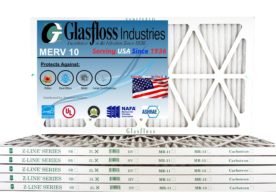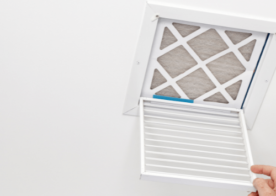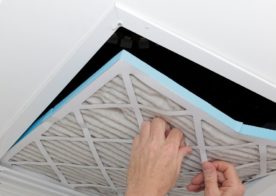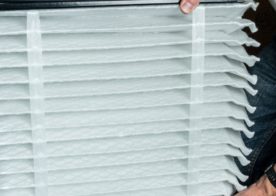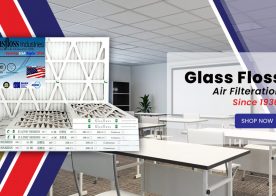Different air filters based on efficiency
An air filter is a device made of fibrous or porous materials that remove solid particles. Particles can be dust, pollen, mold, and bacteria from the air. Filters containing an adsorbent or catalyst such as charcoal (carbon) may also remove odors and gaseous pollutants such as volatile organic compounds or ozone. These are used in applications where air quality is essential, notably in building ventilation systems and engines.
Introduction to air filters and pollution:
Indoor air contaminants are recognized as a public hazard since the last decade. A large number of household products discharges VOCs (Volatile Organic Compound). The accumulation of these contaminants causes various diseases that range from asthma to cardiovascular disorders. According to Amos (2016), more than 5.5 million people worldwide die prematurely every year due to outdoor and indoor air pollution. Similarly, the Global Burden of Disease project puts air pollution as the fourth most significant risk after high blood pressure, dietary risks, and smoking. Air filtration technology plays a crucial role in protecting human health by removing indoor air pollutions. Many com panies manufacture air cleaners, which vary widely in design, methods of operation, cost, and level of efficiency.
panies manufacture air cleaners, which vary widely in design, methods of operation, cost, and level of efficiency.
Different air filters based on efficiency
Air filters have four types. These four types are pre filter, medium filter, high efficiency particulate air(HEPA) filter, and ultra-low particulate air (ULPA) filter. The filtration efficiency of the ULPA filter is over 99.999%. HEPA material has a strong ability for trapping particles as it can remove 99.97% of particulate matter, smog, and bacteria with a size of over 0.3 μm. In contrast, the efficiency of medium filter is only 60–90%. HEPA Filters are the most common filters. Theatres, Hospitals, Vehicles also use HEPA Filters.
Types:
Many types of Air Filters are available. You can choose them based upon your need. Fiberglass air filters come with low prices but offer lesser efficiency than most other types of air filters. Pleated filters can effectively filter out dust and other pollutants from the air. Washable air filters can be removed and washed, so they do not have to be replaced very often. However, these washable filters cost a more considerable amount. UV filters are less efficient at filtering dust and other pollutants but effectively use UV light to kill germs and bacteria. Therefore, they are good at combatting microorganisms that are dangerous to one’s health. High-efficiency particulate air (HEPA) filters are best for people with allergies and prone to respiratory difficulties. They are useful in screening poisonous substances up to 99.97. The US Department of Energy also recommends these Filters.


